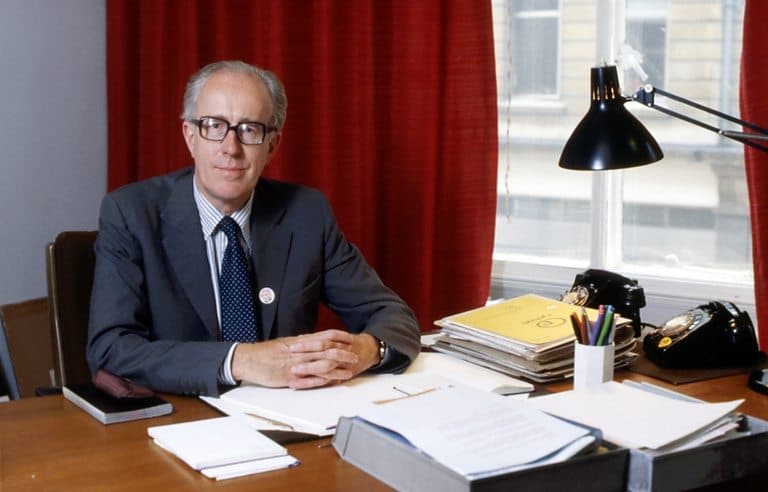Death of a BBC music boss
mainThe Times has a death notice for the former controller of BBC music Robert Ponsonby, who has passed away aged 92.
A charming, civilised conversationalist, Ponsinby he was running the Scottish National Orchestra when he won the race in 1972 to succeed William Glock, the BBC’s propagandist of modernism who left a minefield of bruised egos in his wake.
Ponsonby soon found himself on the wrong side of a corporate plan to reduce the number of BBC orchestras by half. The musicians duly went on strike. Ponsonby lost his job in 1985. The orchestras were halved anyway.
So it goes.






As far as I remember in 1980 the BBC wanted to cut 5 orchestras. The BBC Scottish was saved, the BBC Northern Ireland amalgamated with the Ulster Orchestra with the loss of some jobs and 3 radio orchestras went. I’m open to correction though.
He was a fine man, a deeply committed, old school arts administrator – I fear a sadly forgotten breed.
Robert Ponsonby’s relationship with Alexander Gibson in Scotland is often forgotten because his tenure at the SNO (1964-72) coincided with the early years of Scottish Opera when it was the partnership of Gibson with Peter Hemings which garnered the headlines. But we should remember that it was also Ponsonby’s enthusiasm for Gibson’s operatic venture and the SNO being crucial to it which aided that success in no small measure,
It is my belief that Gibson’s career flourished during those years partly because he had two strong administrators working closely with him, experienced managers who believed in his vision and were committed to seeing it come true for both the SNO and Scottish Opera. Without both men, I often wonder if Gibson could have so magnificently led productions of The Trojans with the supreme Baker at her peak, Der Rosenkavalier with Dernesch, Baker and Harwood, The Ring and many other major works.
Let us also remember how the SNO itself developed internationally during Ponsonby’s years in Scotland after he had given up the position of Artistic Director of the Edinburgh Festival. For its first European tour, Ponsonby had arranged two distinguished and much sought-after soloists in Janet Baker and Jacqueline du Pre. The tour’s first concerts were in the Musikverein.
The Robert I knew was a quiet, distinguished, committed and friendly man. RIP
I think that Ponsonby’s position was, although not short, often untenable. Nevertheless, I think that he was able to bring elements of the world that was Radio 3 back from the brink.
I don’t know why you feel the need to caricature the life of “a charming, civilised conversationalist” in such an uncharming and uncivilised manner. Apart from the obvious pre-BBC omissions (notably Glyndebourne and Edinburgh), it’s grotesque to summarise his BBC career as “gets job, musicians strike, loses job”, with the clear intention of implying that he was sacked as a result of the strike. The strike was in 1980, about halfway through his dozen or so years in charge. And “The orchestras were halved anyway” isn’t true, since the BBC Scottish Symphony Orchestra continues to thrive and although the BBC Northern Ireland Orchestra disappeared, many of its musicians joined an enlarged Ulster Orchestra, surviving in similarly good health to this day. (For the record, the Northern and Midland Radio Orchestras and the London Studio Players were axed.)
The man himself was a perceptive observer and chronicler of people, as witnessed by newspaper obituaries of others (most recently Raymond Leppard, though many without a byline), and fascinating portraits of many musician friends and colleagues can be found in “Musical Heroes”, while elements of his own multifaceted life can be enjoyed in “In and Out of Tune” – a more richly varied and interesting life than might be imagined from this misshapen thumbnail sketch of a mere BBC apparatchik. (Yes, I declare a personal interest, having enjoyed my first decade of Promming during his regime and subsequently helped with the preparation of the latter volume.)
The BBC Scottish Radio Orchestra also went at about the same time
I found him rather awe inspiring (not helped by his height – 6’5″?), until I had to ring him up on one occasion, and he was absolutely charming. ‘Musical Heroes’ is utterly fascinating; I didn’t know about ‘In and Out of Tune’, but will seek it out (thanks, David). Robert’s father was Noel Ponsonby, organist of Christ Church Cathedral, Oxford.
Incidentally (as The Scotsman recalled ten years ago), Robert ‘was the man who encouraged four young men – Alan Bennett, Peter Cook, Jonathan Miller and Dudley Moore – to mount a satirical revue called Beyond the Fringe in his final 1960 [Edinburgh] Festival. For that alone, he was surely worth his weight in gold’. Quite so.